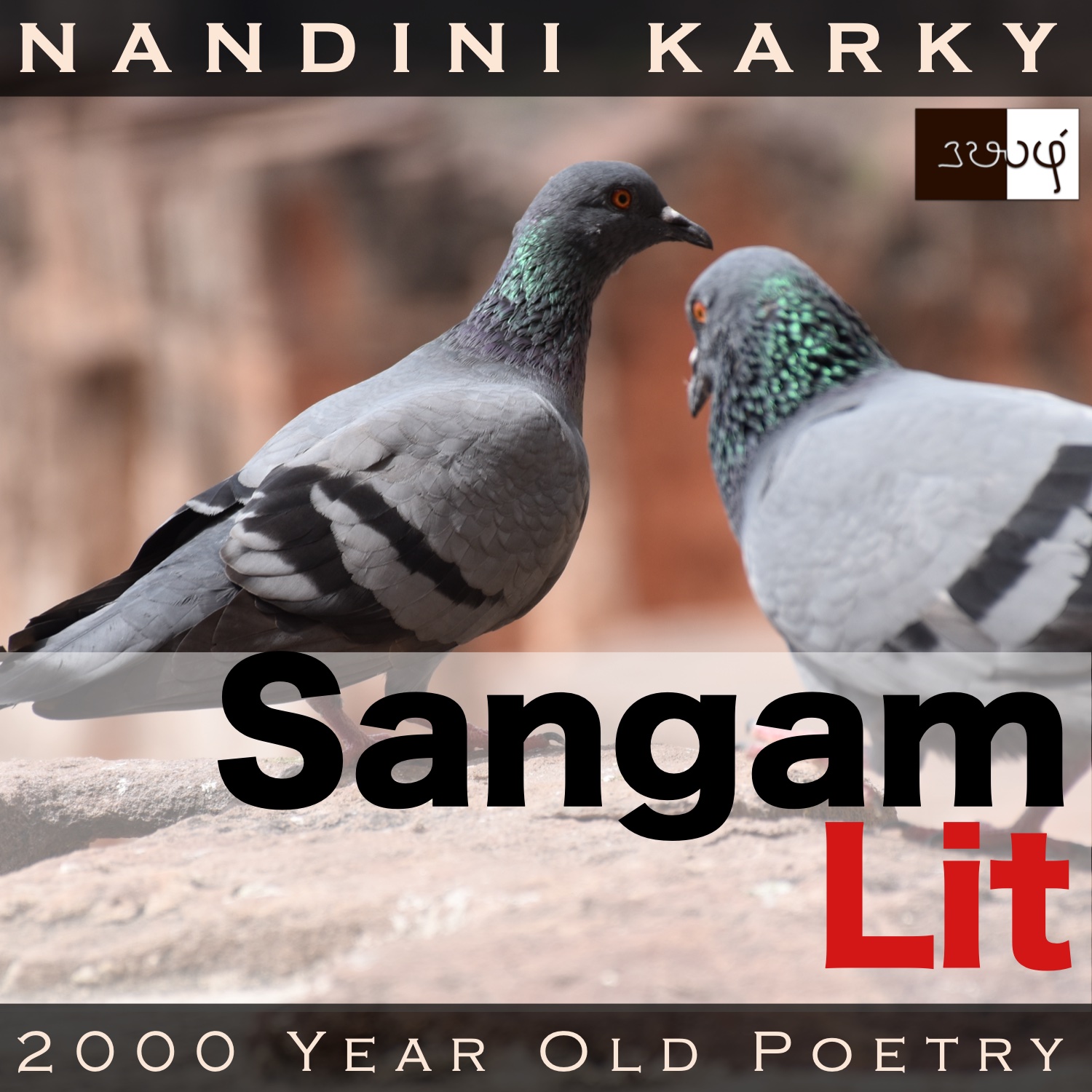Podcast: Play in new window | Download
Subscribe: Apple Podcasts | Spotify | Amazon Music | Android | iHeartRadio | Email | TuneIn | RSS | More

In this episode, we observe the struggle between seeking wealth and showing kindness, as portrayed in Sangam Literary work, Kurunthogai 174, penned by Venpoothiyaar. The verse is situated in the drylands of ‘Paalai’ and speaks in the voice of the lady to her confidante, expressing her anguish on hearing about the man’s intention to part away.
பெயல் மழை துறந்த புலம்பு உறு கடத்துக்
கவை முடக் கள்ளிக் காய் விடு கடு நொடி
துதை மென் தூவித் துணைப் புறவு இரிக்கும்
அத்தம் அரிய என்னார், நத்துறந்து,
பொருள்வயிற் பிரிவார்ஆயின், இவ் உலகத்துப்
பொருளே மன்ற பொருளே;
அருளே மன்ற ஆரும் இல்லதுவே.
The verse attempts to answer the question of ‘what appears to be the most valuable thing to the world!’. The opening words ‘பெயல் மழை துறந்த புலம்பு உறு கடம்’ talks about ‘the drylands forest which the rains have deserted’ and characterise the arid nature of that region. Further shades are added in ‘கவை முடக் கள்ளி’ meaning ‘cacti with curved and forked branches’, pricking you with their thorny appearance. ‘துணைப் புறவு இரிக்கும்’ meaning ‘flies away from its mate pigeon’ seems to hold within the subtext of this song. The phrase ‘பொருளே மன்ற பொருளே’ meaning ‘wealth is the prominent thing’ is an observation about materialistic attitudes. Ending with the words ‘அருளே மன்ற ஆரும் இல்லதுவே’ meaning ‘there’s no one to consider that kindness is more important’, the verse welcomes us to know more.
A tussle between wealth and kindness, no doubt! The context reveals that the man and lady were leading a happy, married life when the man decided to part away to gather wealth. He conveys his decision to the confidante and she brings this news to the lady. To the confidante, the lady says, “In the loneliness filled scrub jungle, which the rains have forsaken, the cacti with curved branches, bursts its pods with a harsh sound. Just then, a pigeon with clustered, soft feathers flutters away from its mate in that inaccessible drylands. Without thinking, if he leaves me and goes thither in search of wealth, then the most esteemed thing in this world must be wealth. Compassion finds no place in anyone!” With these words, the lady laments the importance being accorded to wealth by the man and conveys her dejection at being left behind as he leaves on his material pursuits.
Time to explore the nuances. The lady takes us right to the path where the man will be walking, in the scrub jungle, from where the clouds have fled and show no sign of returning. She zooms on to a cactus plant with bulging branches and pauses at the moment when one of its fruits bursts open with a sudden, harsh sound. Hearing this, two pigeons that were cuddling together break apart and flutter away. Saying such is the path the man wants to walk, without a thought about her state, and if he were to do that, then she can only say that the world considers wealth to be the supreme thing and there’s not a soul to think of compassion’s value, she concludes.
Morose words from the lady’s mouth! That moment when the pod bursts open and the pigeons flutter away makes me think that this must be the very sound made by the rousing call in the man’s heart to seek wealth that makes the man and lady break their bond of togetherness. What amuses me is that this is an ancient verse, said to be two thousand years old and what we condemn as the rise of materialism in recent centuries seems to be showing its sprouts even then. Values or wealth? The same conflict that rises, be it in protecting wildlife or building dams, and at a microlevel, should parents spend time playing with their children or earning more to buy them playthings – continues in countless ways and in countless dimensions. Hope we will have the wisdom and the world too will let us choose thoughtful compassion over material possession, at least most of the time!




Share your thoughts...